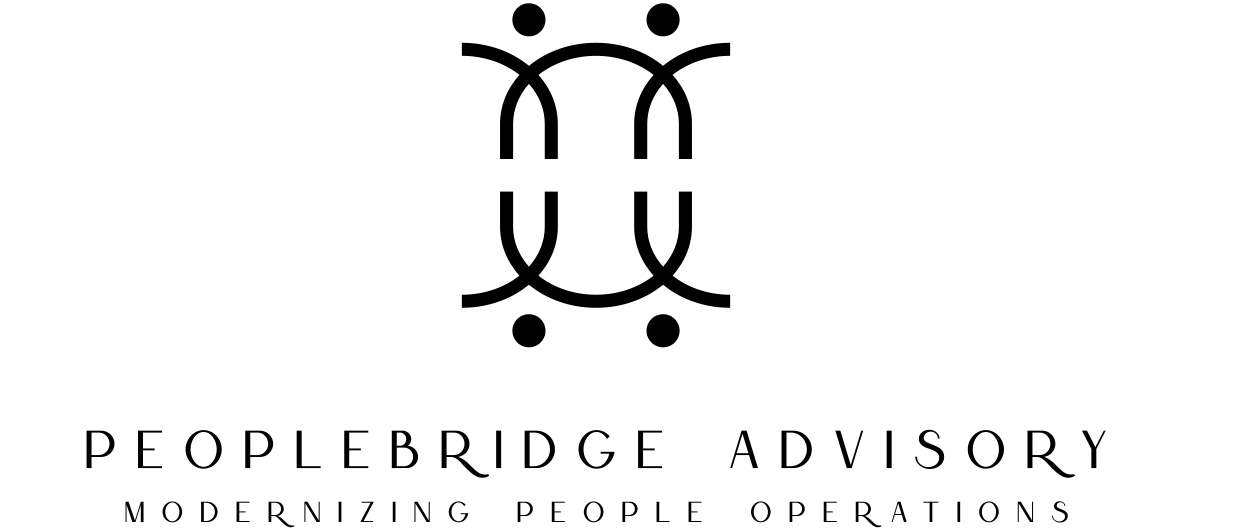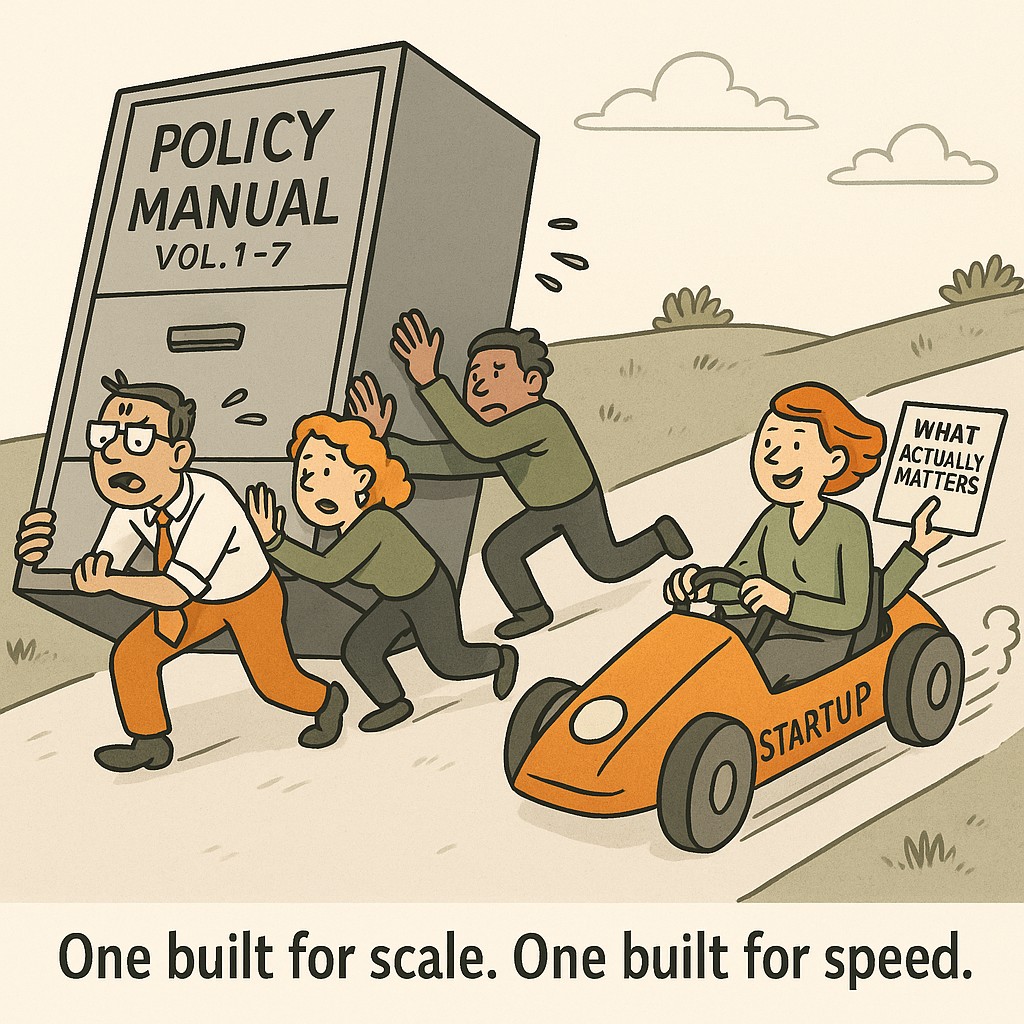In early-stage companies, the instinct to “build it right the first time” can lead founders and early HR hires to over-process the people function. Fancy systems. Overloaded policies. Layers of complexity in performance reviews and onboarding. But here’s the truth: in a 15- to 75-person company, over-processing HR can do more harm than good.
At this stage, your business is still learning who it is. Roles are fluid. Priorities shift weekly. People wear five hats. If HR becomes a rigid system instead of a responsive support function, it slows everyone down—and creates frustration.
Instead of building for scale you might reach, focus on serving the now. A lightweight handbook beats a 40-page policy manual. A conversation-based performance check-in is better than a clunky rating system imported from a Fortune 500. A shared spreadsheet might beat that expensive HRIS, at least until your needs are clearer.
Here’s what matters more than process at this stage: clarity, consistency, and trust. Are people clear on expectations? Are managers applying rules consistently? Are you building a culture where employees feel safe to speak up? You don’t need heavy process for that, you need communication and leadership.
When you reach 100+ employees, you’ll need more structure. That’s the right time to introduce scalable systems, layered policies, and deeper analytics. But if you install that infrastructure too early, you risk building the HR equivalent of a mansion when you still live in a tent.
Good HR at the startup stage should be agile, human, and built to evolve. Prioritize tools that help managers manage, policies that protect (not police), and practices that grow as the company does.
Build just enough HR to move fast and stay compliant. Nothing more. Nothing less.
Want help knowing where to draw the line? I specialize in designing right-sized HR for fast-moving companies. Let's talk.


